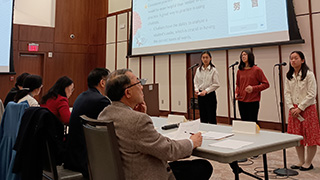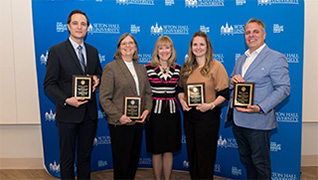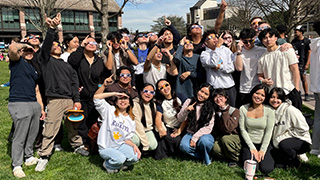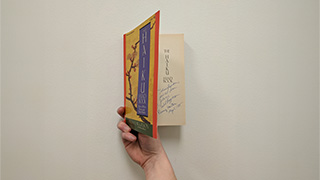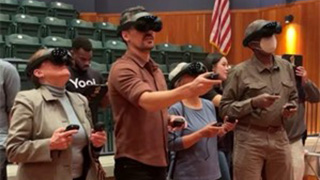Office of Grants and Research Services Hosts Workshop Series During Petersheim
Wednesday, April 17, 2024
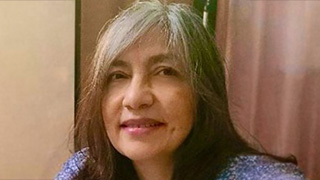
Norma Rubio.
Seton Hall University's upcoming 28th annual Petersheim Academic Exposition, titled "Share, Honor, Unite," celebrates academic achievements, and engages the entire university community, including undergraduates, graduates, faculty, administrators and staff across diverse disciplines. Especially notable this year is the Office of Grants and Research Services (OGRS) series of talks, aimed at empowering student and faculty researchers.
The theme of the talks is "Knowledge is Power!" and sessions are strategically designed to provide important insights and tools related to grant research, proposal writing, Cayuse training, compliance regulations and award management. Led by Norma Rubio, Compliance Grants and Grants Information Systems Manager and Maria Alonso, secretary of the Office of Grants and Research Services, the sessions will cover a range of topics.
Following the research project management cycle, OGRS talks feature all steps necessary in the grant process, from submitting a proposal, to following the requirements, to receiving an award to project implementation, all while financially and programmatically making sure all points of compliance are met.
Rubio believes that the more the Seton Hall research community knows about grant processes, the better prepared they will be to submit successful proposals that will generate awards. "OGRS is taking this opportunity to showcase the multidisciplinary research already present at Seton Hall, and providing relevant information about policies, regulations and tools that empower researchers to submit successful proposals with confidence," she said.
The first OGRS session, "Proposal 101," delves into the foundational aspects of crafting competitive grant proposals. It emphasizes understanding sponsor requirements and navigating compliance regulations, essential for successful grant submissions.
"Grant writing skills give researchers the tools to communicate ideas effectively, attract more supporters, and amplify impact in society," says Rubio. "Mastering grant writing is more than just knowing how to fill out application forms, but also understanding the audience, being able to articulate the organization’s vision clearly, and demonstrating how the organization provides tangible solutions to specific societal problems."
Grant researchers can generate different outcomes, such the creation of new curriculum. This might engage students in a specific STEM curriculum, suggests Rubio, by financing part of students’ tuition, as the students create a new procedure to investigate the chemicals reactions used in medications towards curing different diseases.
Next on the schedule is "Cayuse Training: Building on Proposal 101." Cayuse is the tool that helps to simplify the approval process at Seton Hall and keeps track of all submitted proposals. "Stakeholders are able to quickly be informed using an abstract, what a concept budget may be," says Rubio, and this helps streamline proposal submission and facilitates stakeholder approval processes.
A subsequent session, "Compliance 101," emphasizes the importance of compliance in research integrity. The session covers several aspects of compliance, including institutional animal care, conflict of interest, ethics and more. Understanding these elements ensures ethical and lawful research practices. "Research Compliance is an integral part of the research process, from the beginning of the submission to the close out of the award," explains Rubio. "Researchers need to be able to follow the requirements of the sponsor with the initial submission, in order to receive the award, which needs to be financially and in programmatically monitored."
After the research is complete, and the grant submitted, comes material featured in the series talk, "Awards 101." Managing research awards involves financial stewardship, programmatic implementation, and adherence to compliance standards. This session educates researchers on award management best practices, ensuring efficient and effective utilization of research grants.
The goal of these sessions is to empower attendees with knowledge, fostering successful grant submissions, ethical research practices, and impactful academic contributions. Rubio notes the Office of Grants and Research is a supportive partner in any student or faculty researcher’s academic journey, guiding them towards excellence while upholding regulatory standards.
The talks will also point to a faculty research showcase, which is a compilation of active research projects. These feature many areas of research at Seton Hall, ranging from STEM initiatives to curriculum, to studies in new chemical research that can transform cancer care, and the study of international relations. Overall, the showcase is a platform for researchers to share their ongoing projects, highlighting Seton Hall’s diverse research endeavors.
The OGRS series reflects Seton Hall University's dedication to academic excellence, research integrity, and collaborative knowledge sharing, all while making a meaningful difference in the academic and global community of research.
All events will be held with two sessions on each topic running in the morning from 10 to 11:30 a.m. and in the afternoon from 2 to 3:30 p.m. in the silent study room of Walsh Library. For more information and questions, please contact the Office of Grants and Research at [email protected] or visit the Petersheim event schedule.
Categories: Education, Research

